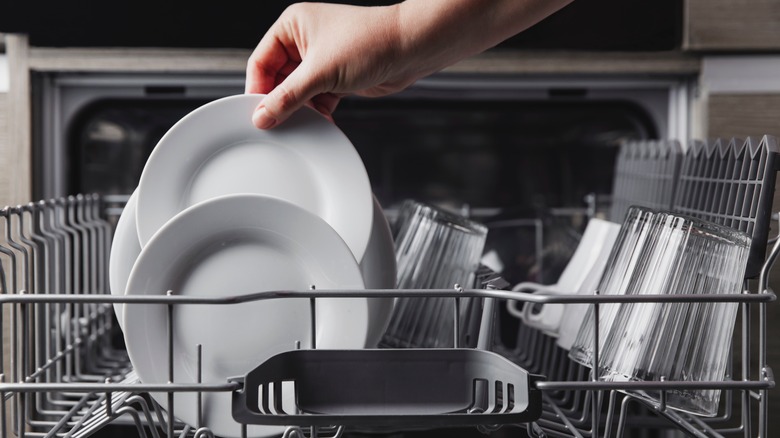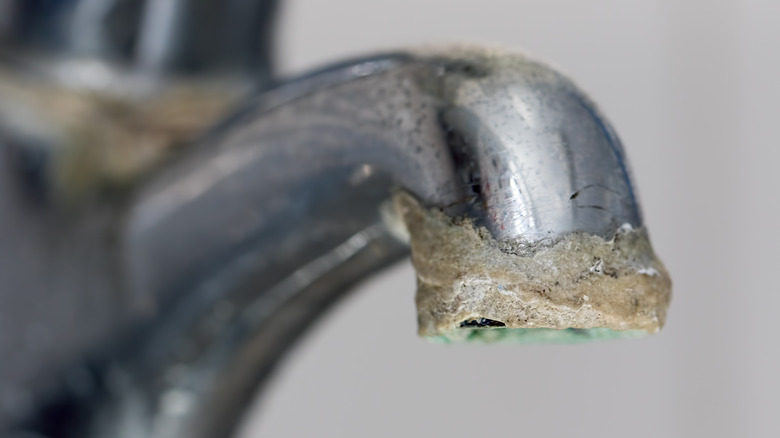Clean Your Dishwasher With Lemon Juice And Thank Us Later
A dishwasher is one of the hardest working appliances in any kitchen. Day after day it tirelessly cleans and sanitizes plates and pans, and often the only time anyone thinks about it is if it breaks down. Despite doing so much of the heavy lifting when it comes to kitchen cleanup, dishwashers actually get dirty themselves, including mineral deposits that can build up on the parts that help get your dishes clean. If you run a cup of lemon juice through your empty dishwasher, however, you can remove hard water residue that could be clogging up jets and sprayers and building up on the elements that heat the water.
Dishwasher detergent companies would love to sell you more products to clean the inside of your machine, but you don't need to spend any money on extra chemicals when you probably have a couple of fresh lemons hanging out in your refrigerator or fruit bowl. If you have a few that are getting a little soft and are destined for the compost pile, you can also save a few dollars (and the environment) by using them to clean your dishwasher instead of letting them become food waste.
Hard water could be preventing your dishes from getting clean
Depending on where you live, your dishwasher could be accumulating hard water deposits, which can gather around the tiny openings on the sprayer arms inside your dishwasher. If they get too plugged up, not enough water will reach your dishes to wash away all of the food and debris, and you'll notice that your plates and cups still have bits of stuff stuck to them. When they collect on the heating element, they can cause damage and mess up temperature readings.
Hard water is water that has a lot of dissolved minerals in it, like calcium, magnesium, and lime. Bob Vila says that hard water is found throughout the U.S., but it's most common in the Midwest and Southwestern states. If you're not sure if you have hard water, the most obvious sign is if your faucets have stubborn, crusty, white deposits on them. If you see those on your sink (pictured), you definitely have minerals building up in your dishwasher. Other signs that your water is hard are clothes not getting clean in the washing machine, and soap not cleaning or lathering properly on your body, like hand soap and shampoo.
The good news is that if you do have hard water, all you need to get rid of those deposits is an acidic solution to dissolve the scale away.
Clean your dishwasher from the inside
If you want to use lemon juice to clean the hard water scale in your dishwasher, follow a few simple steps. First, squeeze the juice from a few fresh lemons to get about a cup of juice. This is a great job for lemons that aren't going to get eaten but haven't spoiled either, because they'd probably get thrown away otherwise. Once you have the juice ready, put the bowl on the top rack of your empty dishwasher and run a normal wash cycle. Depending on the model, the cycle will give the lemon juice anywhere from an hour and a half to four hours to do its thing. When the cycle is over, you can run your dishwasher normally.
It's a good habit to run lemon juice through your dishwasher once a month if you know you have hard water to keep the parts in working order. If you don't have hard water or you're not sure, you can still do the lemon juice trick every couple of months just to be sure no minerals are building up. If you stay on top of keeping your dishwasher clean, and keep up on regular maintenance, it'll go a long way toward making sure your dishes are always spotless.


